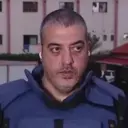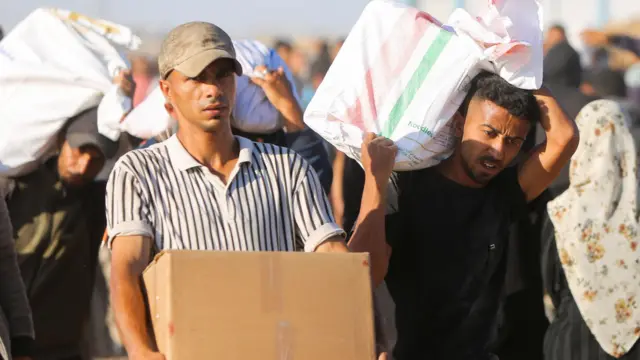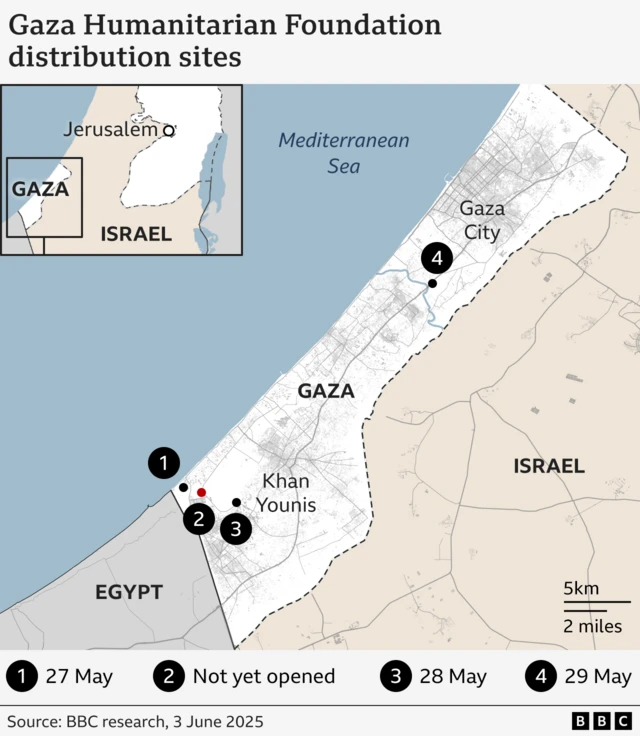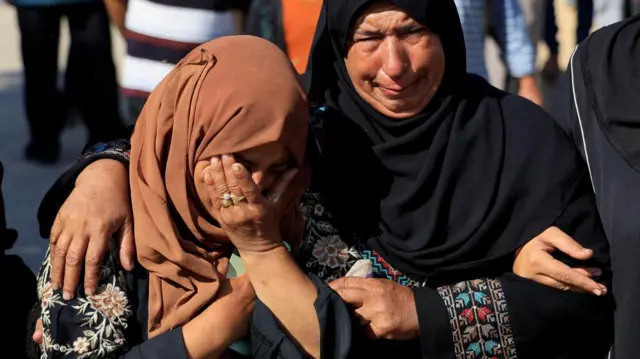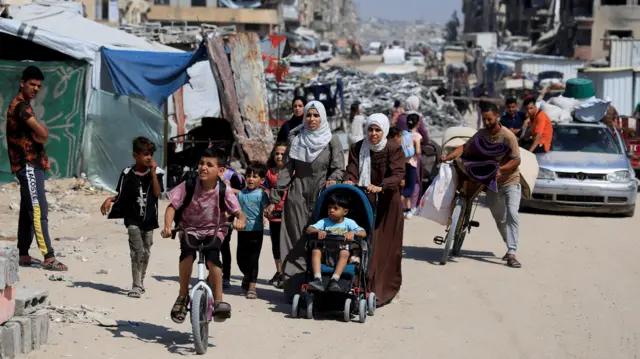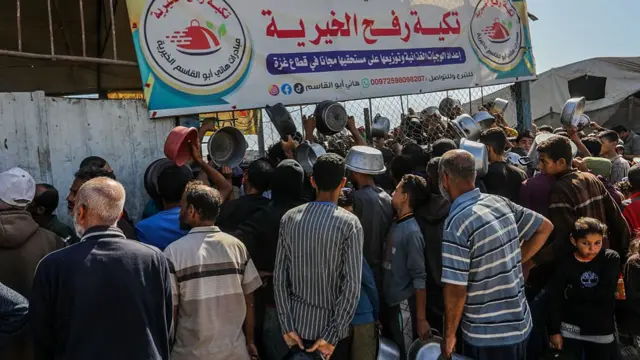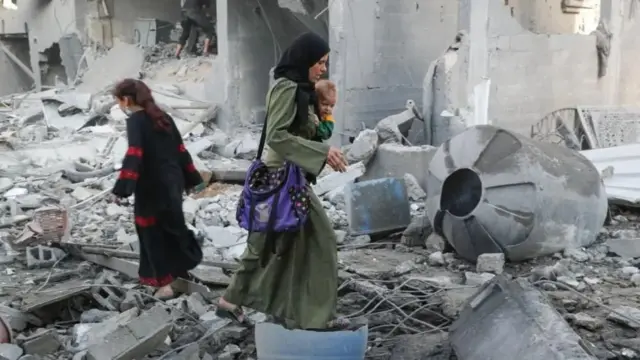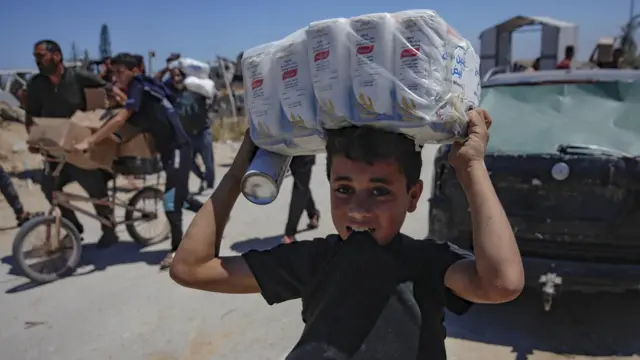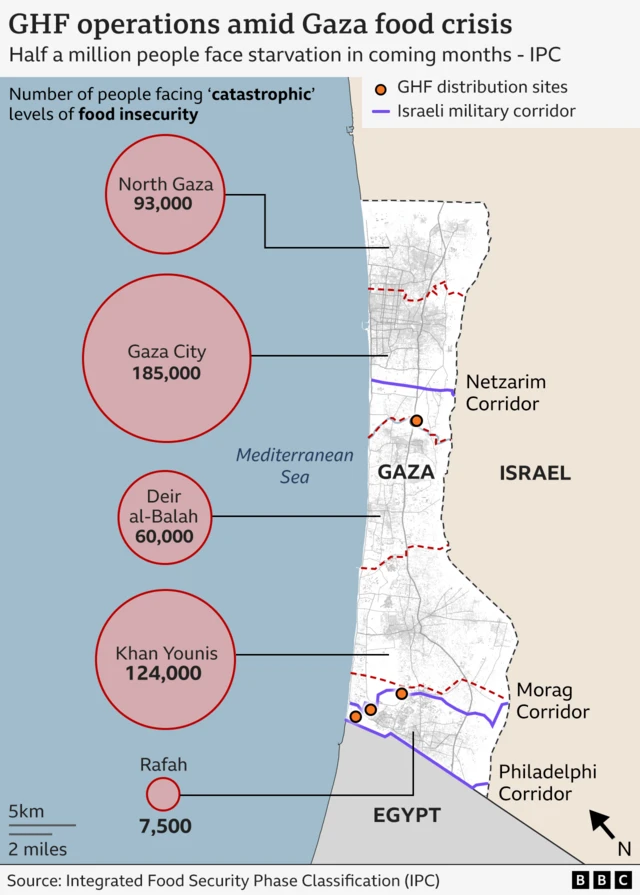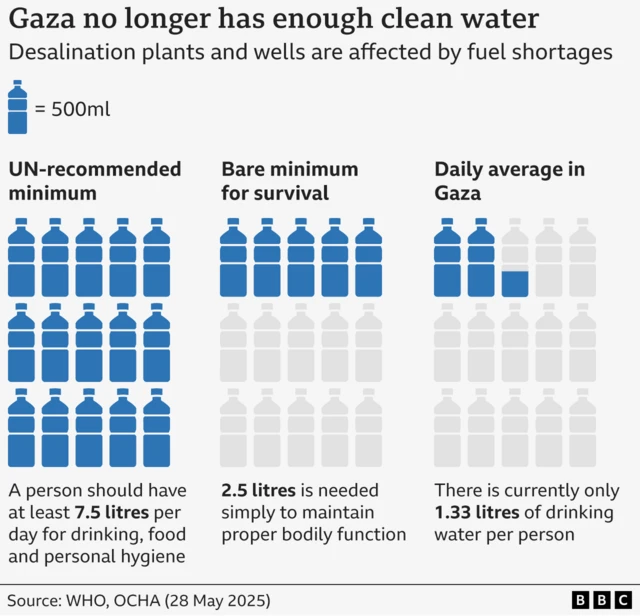Pregnant women in Gaza 'frightened' as dangers around childbirth growpublished at 09:42 BST 4 June
Yolande Knell & Callum Tulley
Reporting from Jerusalem
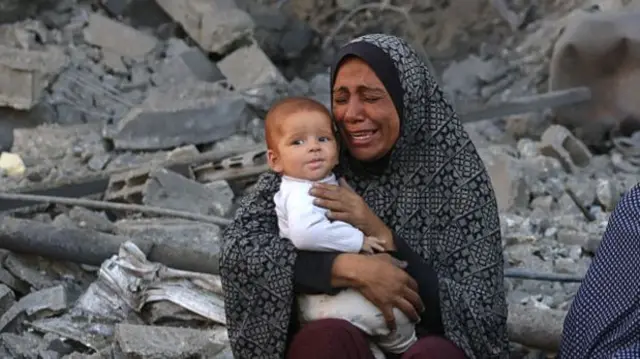 Image source, BASHAR TALEB/AFP
Image source, BASHAR TALEB/AFPAmid a deadly war in Gaza, new lives begin. But newborn babies and those still in the womb are among the worst hit by the harsh conditions.
With acute shortages of food, the UN says that one in 10 new babies is underweight or premature. There has also been an increase in miscarriages, stillbirths and congenital abnormalities.
Many mothers are struggling to breastfeed because of their own poor health.
At Nasser Hospital in the southern city of Khan Younis, Malak Brees, now seven months pregnant, did not expect to conceive her second child. Six weeks ago, she lost a lot of amniotic fluid, putting her baby in danger.
"The doctors told me it was due to malnutrition and exhaustion... They told me it was in the hands of God - the foetus could survive or die."
While poor nutrition is causing new hazards in pregnancy, childbirth too has become far riskier.
Sometimes Israeli military action and displacement mean that women are giving birth in their tents or shelters with no medical help.
"If mothers are lucky enough to come to the hospitals to deliver their babies, women who give birth vaginally are typically being sent home three to four hours afterwards," says Sandra Adler Killen, an American registered emergency and paediatric nurse, who recently worked at the hospital in Gaza.
Rather than representing the hope of new life, babies have come to epitomise the struggle to survive.
